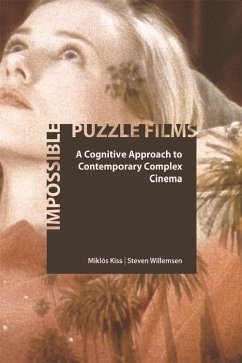'Kiss and Willemsen's book is an important step forward in the study of cinematic complexity. It offers a thorough analysis of complex storytelling techniques with a special focus on the "impossible puzzle films", reveals the cognitive effects and challenges they evoke, and explores the reasons why viewers find them fascinating.' Marina Grishakova, Institute of Cultural Research and Arts, University of Tartu Narrative complexity is a trend in contemporary cinema. Since the late 1990s there has been a palpable increase in complex storytelling in movies. But how and why do complex movies create perplexity and confusion? How do we engage with these challenges? And what makes complex stories so attractive? By blending film studies, narrative theory and cognitive sciences, Miklós Kiss and Steven Willemsen look into the relation between complex storytelling and the mind. Analysing the effects that different complex narratives have on viewers, this book addresses how films like Donnie Darko, Mulholland Drive and Primer strategically create complexity and confusion. Using the specific category of the impossible puzzle film, it examines movies that use baffling paradoxes, impossible loops and unresolved ambiguities in their stories and storytelling. By looking at how these films play on our mind's blind spots, this innovative volume explains their viewing effects in terms of the mental state of cognitive dissonance that they evoke. Miklós Kiss is Assistant Professor in Film and Media Studies and Steven Willemsen is a PhD candidate and Junior Lecturer in Film Studies, both at the University of Groningen, The Netherlands. Cover image: Naomi Watts in Mulholland Drive, David Lynch, 2001 © Melissa Moseley/Universal Focus/Photofest Cover design concept by Anne-Nynke Knol [EUP logo] edinburghuniversitypress.com ISBN 978-1-4744-0672-7 Barcode
Hinweis: Dieser Artikel kann nur an eine deutsche Lieferadresse ausgeliefert werden.
Hinweis: Dieser Artikel kann nur an eine deutsche Lieferadresse ausgeliefert werden.








